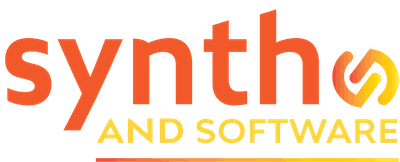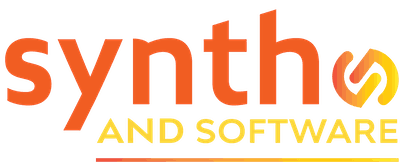In This Issue
Spitfire Albion: Solstice – the Exclusive Synth and Software Review

Which comes first – the trend or the sample library? Kays Alatrakchi counts his eggs and chickens before and after they hatch.

The Albion Solstice sample library comes in as a hefty 73Gb download (easily managed thanks to the proprietary Spitfire Audio application). It requires Native Instrument’s Kontakt or the free Kontakt Player, and can be hosted in any number of supported DAWs. The library is also fully NKS compliant for integration within the Komplete Kontrol ecosystem.
Albion Solstice’s focus is primarily on small ensembles of traditional folk instruments such as the hurdy-gurdy, accordions, nyckelharpa, bodhrán, and other Celtic- and Gaelic-inspired tonalities. The inclusion of a number of unexpected sources such as electric guitars and basses, vocals, found percussion, and even saxophones and trombones offers a much broader compositional palette than one might initially expect from this type of library.
Albion Solstice is divided into three main sections: The Cassette Orchestra, The Drone Grid, and The Solstice Orchestra (more on the first two later on). The Solstice Orchestra section is the heart of this library, and it is made up of nine subsections with evocative names such as the Marauders, the Elders, the Mystics, etc., each covering a particular instrument group such as Strings, Brass and Winds, Percussion, Choir, etc.
Each of these subsections in turn contains several presets, or in the case of The Elders three additional subsections made up of a Classic Octet, a Traditional Sextet, and a solo Bass, each with their own preset groups. These instrument presets in turn contain as many as 16 different relevant articulations ranging from sustains, short staccatos, tremolos, as well as a variety of special effects, bends, and drones.
The instruments are impeccably recorded and performed. Spitfire’s programming and editing is equally top-notch, lending a responsiveness to the instruments that blurs the line between playing a sample library and working with real musicians. To capture the minute details and fidelity of each instrument, the Spitfire team employed innovative and unusual miking techniques such tiny DPA microphone capsules clipped directly onto the body of the instruments. The Easy Mix panel in the interface lets you change quickly between distant and close-up microphone positions.
Pressing the wrench icon reveals individual faders for each of the four recording positions for fine-tuning the mix with even more precision. The uncluttered and intuitive layout also includes Help Bubbles that pop-up with additional information on what each parameter does.
Solstice’s “Motor” presets are repeating staccatos in eight, 16th, or triplet note durations. All the Motor instruments sync to the host DAW’s tempo automatically, providing an effortless way of achieving rhythmic phrases.
The “Evos” presets are evolving textures designed for long sustained passages. If you read my review of Spitfire’s Contemporary Drama Toolkit you probably know how much I love these slow changing textures. They can work well on their own or in combination with other sample libraries to add life to otherwise static sustains.
In use, I found Albion Solstice to be a series of unexpected surprises. The Elders String sections (both Octet and Traditional Sextet) are versatile enough to lend themselves to folk styles as well as more contemporary compositions.
Unlike the Octet, the Sextet strings sound more rustic and unrefined with slightly but pleasantly off intonations. In particular, the Flautando sustains have a lovely emotional quality that is sure to come in handy for soft and intimate dramatic passages.
The Callers wind and brass provide a wealth of useful tonalities and textures not typically found in other libraries. Effects such as Overblown, Spoken, or Scattered Tremolos produce unsettling atmospheres well suited for horror scores.
The Mystics provide a very serviceable selection of high woodwinds and pipes tonalities. However, I did find myself wishing for a bit more articulations in this group.
Blaggards is perhaps the most traditional-sounding group, with folk instruments such as the hurdy gurdy, harmonium, accordion, and Celtic harp. One of its standouts is the Harmonics plucked harp, which has a beautifully haunting bell-like tone.
The Hosts choir was also a welcome surprise. Far too often, vocal instruments in these types of all-encompassing sample libraries tend to be a bit of a throwaway, but these choirs sound great. In addition to a selection of sustained vowels (both with natural endings and infinite sustains), the Cellular and Wavering sustains provide a very raw and rural tonality that’s at once both beautiful and haunting.
The Motors vocals are unique, and the Songbath preset features four fully composed vocal songs that were a delight to just listen to and enjoy.
Generators, the next group, is comprised of electric guitars and basses. While this might seem like an unusual inclusion in an otherwise strictly acoustic library, in Solstice they somehow fit right in. The Evos textural drones especially are recorded and processed in a way that evokes the tonalities of the Blaggards drones, but with more grit and edge.
Gut Circle features acoustic guitars, ukuleles, and mandolins – once again impeccably captured and fitting right in with the rest of the instruments. Perhaps because I’ve been playing The Last of Us 2 lately, the Tremolos and Scattered selections reminded me of the emotionally touching score of that game by composer Gustavo Santaolalla. I get the feeling that the Spitfire team must be as much of a fan of Santaolalla as I am.
If what draws you to music are the magical musings of wood nymphs and fairies, then you’ll love The Nursery instruments. These include a selection of celeste, dulcitone, glockenspiel, and other bell-like sounds that are sure to please even the most ardent Harry Potter fan.
Last but not least, The Marauders offer percussive grooves and drum kits. These include The Snake Kit, comprised of found objects, as well as an entire subsection called The Visitor, which includes processed versions of the various Marauders grooves and kits.
While The Solstice Orchestra alone offers more than enough content to satisfy even the most demanding customer, the Spitfire team didn’t stop there. The Drone Grid section takes the various Evos presets from the Solstice Orchestra and combines them in a fully customizable grid-like matrix.
If you’re familiar with the previous Evo Grid offerings from Spitfire, you’ll feel right at home with The Drone Grid interface. For newcomers, the interface provides a convenient dropdown menu that will automatically create random configurations of drones and textures for an almost infinite number of combinations.
But Wait There’s More, as in a whole new sample library of content that adds an entirely new dimension and scope to Albion Solstice. The Cassette Orchestra section is a set of 150 additional presets created by mangling, processing, degrading, and generally abusing the beautiful Solstice Orchestra samples into completely unrecognizable synthetic instruments worthy of Trent Reznor’s attention.
The Cassette Orchestra interface is based on Spitfire’s powerful eDNA engine, which combines oscillators, arpeggiators, gated effects, and processing to achieve an impressive amount of sonic mayhem. Each instrument is comprised of two different sources that can be blended and processed in various ways.
Spitfire describes eDNA as “a complicated sample player.” But once you wrap your head around the various options, the eDNA interface is actually quite intuitive and easy to use. I could write an entire article on just The Cassette Orchestra, but I can already hear my editor grumbling that this review has gone on for far too long already [On the contrary! – NB], so I’ll just say that The Cassette Orchestra is an expansive addition to an already comprehensive library, and I would invite everyone not to overlook these fantastic instruments.
In my review of Contemporary Drama Toolkit I lamented the omission of the Pitch Wheel as a real-time controller. I would like to give Spitfire Audio massive kudos for being receptive to the suggestion and enabling the Pitch Wheel on all of the Albion Solstice instruments. Thank you!
While at first glance this library might seem like a limited collection of folkloric and acoustic instruments only suitable for very niche uses, in actuality Albion Solstice is one of the most versatile and wide-reaching sample libraries I have ever played. I could easily score an entire film only using Solstice. Horror, romantic dramas, historical period narratives, even futuristic sci-fi techno-thrillers like Blade Runner are all achievable styles with this library.
I think that Albion Solstice is quite possibly one of the most exciting sample libraries to emerge in recent times – one that is not content simply to follow the trends, but that wants to create them by providing composers and music producers with a palette of sounds they never thought they needed but that they’ll likely find essential after getting to know them.
Spitfire Albion Solstice – $449
73Gb Hard Drive space and Kontakt Version 5.6.8 or above required.



















